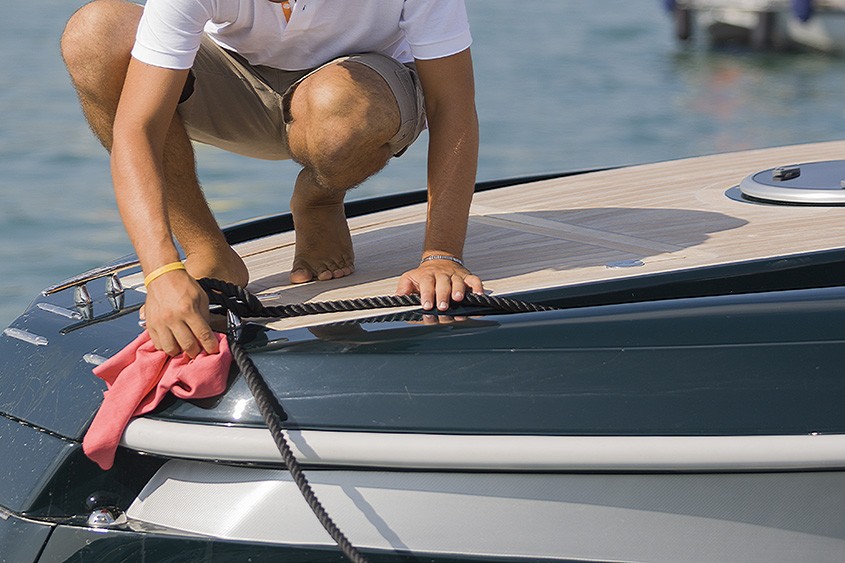Latest Posts
Boat Storage And Maintenance How To Look After Your Boat In Summer

Not only are you going to be using it more during the warm, sunny days, but it’ll also accrue a lot more wear and tear under the harsh daily sunlight.
So with that in mind, we compiled a guide on how to get your ride through the summer. You’ll need to know how to properly use, store, and transport your boat if you don’t want to pay double its worth in maintenance and repairs.
Storage
There are three main options for boat storage: trailer, marina, and rack.
Marina
If you’re living on a waterfront property or use your boat quite often, the easiest and best way to store your boat is on a marina slip. This can be an expensive option if you don’t have a private jetty, but is well worth the cost in the convenience of access and storage that it brings.
With marina storage, the important things to consider (assuming cost is not prohibitive) are safety and paint wearing. Make sure that under heavy winds the boat is either onshore or securely tied, and make sure that it can’t break down itself nor crack in a way to be a danger to others.
It’ll also accrue buildup underwater of various growths and residues which can harm the paint. Washing every other month is recommended, though this can also shorten the paint lifespan itself.
Land
Trailer storage is easy, efficient, transportable, and affordable. If you don’t own a waterfront property, don’t want to risk danger to your craft, or for some other reason don’t want to leave it at sea, then this is a simple option that works wonders.
However, it comes with the downside of inconvenience. A trailer is a large, bulky object that you’ll have to find room for, and you might either have to pay haulage for large boats or spend a lot of time and effort getting it out to sea whenever you want to use it (instead of just casting off).
You’ll also have to deal with creepy-crawlies and other life living in your boat during long downtimes.
To avoid some of these problems, you can use a boat rack, which removes the option of transporting your boat via car, but can act as a trailer near the ocean. For larger boats, the main issue would simply be getting the boat onto the rack itself.
Transportation
Assuming you’ve gone with a transportable option, you’ll need to know the basics of both how to transport and what to look for in a trailer.
Pinning your boat to a trailer means researching the specifics of your craft, as well as your vehicle itself. You should begin by looking up the towing capacity of your car, followed by the weight of the boat - there’s no sense going any further than that if you can’t physically haul it, after all.
If that checks out, you’ll need to purchase a trailer that can support the weight and can be attached to your car model. On top of this, trailers have rather stringent inspection guidelines that you should have a look through.
Before loading a boat onto a trailer, you should go through a basic safety check each and every time you plan to use it. This includes checking basic joining and road safety requirements.
Before launching the boat, you should do another checkover, as well as ensuring the safety of your vehicle near the water. While launching, you should strive to be as absolutely careful when unloading the boat as possible, and make sure that you have somebody already in the boat to prevent it from floating off.
Maintenance
Summer is muggy, and being able to store your boat doesn’t mean that it won’t accumulate internal problems.
Start off by always attempting to keep your boat in the shade, so that the sun doesn’t bleach the paint (many newer boats have a strong resistance to this, but older models are at risk). If you have waterproofing solution, now's the most important time to be applying it after every major clean. Preferably, your boat should be out of the sun entirely, under a tarpaulin covering to prevent water seepage and leafy buildup, as well as helping to keep out bugs.
At the start of summer, it might do to get a hull clean and general maintenance; Summer can often affect your hull, slowing down your boat or preventing it from running for very long, or clog and dry up your steering.
While scum on the hull is ever-present throughout the year, warm summer days are hives for bacterial growth, and so you should be continually checking your lights, fins, and masks for buildup.
A clean boat for years of summer fun
Choosing how you store your boat i Summer is very important. If you tailor your boat maintenance schedule for the Summertime, and take a few steps to give your boat the extra care and maintenance it needs in hot weather, you’ll be able to enjoy those glorious days out on the water for many years to come.
